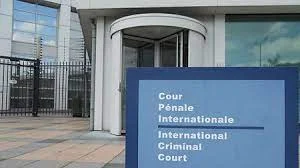
Introduction
HOW DOES THE INTERNATIONAL CRIMINAL COURT COME INTO PLAY?
The ICC was established as a court of last resort to prosecute the most heinous offenses in cases where national courts fail to act. Unlike the International Court of Justice, which hears disputes between states, the ICC handles prosecutions of individuals. The Court’s founding treaty, called the Rome Statute, grants the ICC jurisdiction over four main crimes.
1. Genocide: This is characterized by the specific intent to destroy in whole or in part a national, ethnic, racial or religious group by killing its members or by other means: causing serious bodily or mental harm to members of the group; deliberately inflicting on the group conditions of life calculated to bring about its physical destruction in whole or in part; imposing measures intended to prevent births within the group; or forcibly transferring children of the group to another group.
2. Crimes Against Humanity: which are serious violations committed as part of a large-scale attack against any civilian population. The 15 forms of crimes against humanity listed in the Rome Statute include offences such as murder, rape, imprisonment, enforced disappearances, enslavement – particularly of women and children, sexual slavery, torture, apartheid and deportation.
3. War crimes: which are grave breaches of the Geneva conventions in the context of armed conflict and include, for instance, the use of child soldiers; the killing or torture of persons such as civilians or prisoners of war; intentionally directing attacks against hospitals, historic monuments, or buildings dedicated to religion, education, art, science or charitable purposes.
4. Crime of Aggression: This is the use of armed force by a State against the sovereignty, integrity or independence of another State. The definition of this crime was adopted through amending the Rome Statute at the first Review Conference of the Statute in Kampala, Uganda, in 2010.
In conclusion, The Court is participating in a global fight to end impunity, and through international criminal justice, the Court aims to hold those responsible accountable for their crimes and to help prevent these crimes from happening again. The International Criminal Court (ICC) investigates and, where warranted, tries individuals charged with the gravest crimes of concern to the international community: genocide, war crimes, crimes against humanity and the crime of aggression.
Contact Us
For premier legal research services in litigation cases in Nigeria, contact Chaman Law Firm today. Our offices are conveniently located in Lagos, FCT Abuja, Ogun State, and the UK. We are readily available to assist you with your legal needs. Whether you require consultation, representation, or ongoing legal support, Chaman Law Firm is your trusted partner in navigating legal research law in Nigeria.

